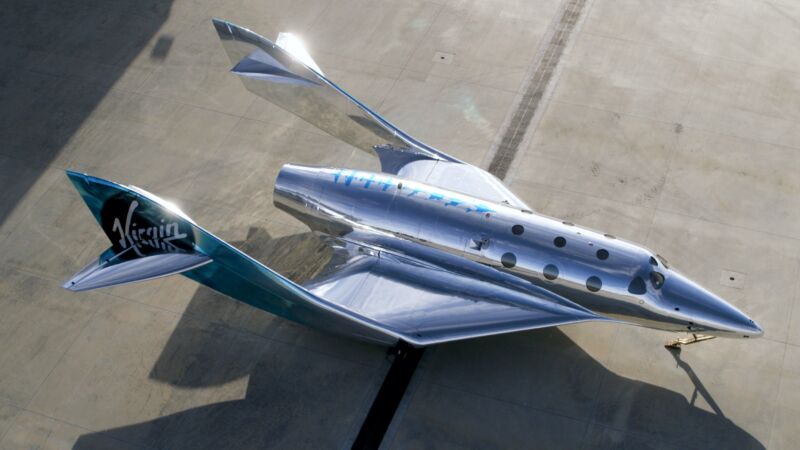Virgin Galactic delays development of ship capable of higher flight rate

Enlarge / Virgin Galactic's new vehicle, VSS Imagine, is lighter than its predecessor, VSS Unity. Will it ever fly? (credit: Virgin Galactic)
Space tourism company Virgin Galactic released its third-quarter financial results on Thursday. As one might imagine of a spaceflight company that has not flown since June 2021, the financials are pretty disastrous. The company reported revenue of less than $1 million against losses of more than $146 million.
After a long period of downtime, Virgin Galactic officials said the company is close to completing "modifications" of its VMS Eve carrier aircraft and VSS Unity spacecraft. The company expects to complete a glide flight of Unity, which is released from Eve at altitude, in early 2023. After that point, the company will conduct a powered test flight, likely with its own employees on board, before a research flight for the Italian Air Force.
And after that, Virgin Galactic CEO Michael Colglazier said, the company remains on track to begin flying commercial passengers-people who bought their seats, some more than a decade ago-in the second quarter of 2023. As with most schedules in spaceflight, that timeline seems pretty optimistic.